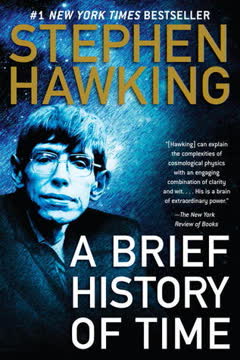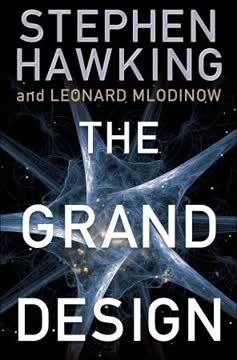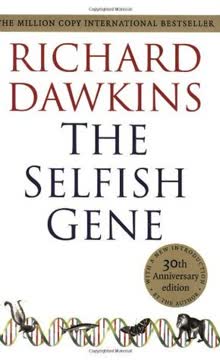重点摘要
1. 宗教是一种妨碍科学进步和理性思考的幻觉
上帝假说是多余的。
宗教阻碍进步。 在历史上,宗教信仰一直妨碍科学的发展和理性思考。“上帝假说”——即一个超自然存在创造并统治宇宙的观点,不仅是多余的,甚至对人类进步造成了积极的伤害。它抑制了批判性思维,促进了对毫无根据信念的接受。
科学提供更好的解释。 现代科学理论,如进化论和宇宙学,提供了比宗教创世神话更具说服力和证据基础的生命和宇宙复杂性的解释。与宗教教条不同,科学理论会根据新证据不断进行测试和修正。
对儿童的洗脑。 宗教最具破坏性的一方面是对儿童的洗脑,尤其是在他们尚未发展出批判性思维能力之前。这种现象延续了非理性信念,使人们在后来的生活中难以客观评估宗教主张。
2. 进化论解释了生命的复杂性,无需创造者
自然选择是盲目的钟表匠,是一种无意识的自动过程,解释了所有生命的存在及其看似有目的的形式。
自然选择是关键。 达尔文的自然选择进化论为生命的多样性和复杂性提供了全面的解释,而无需超自然的创造者。通过数百万年中有益突变的逐渐积累,即使是最复杂的生物结构也能自然产生。
不需要设计者。 自然界中许多人解读为创造者证据的“设计外观”,实际上是自然选择偏爱增强生存和繁殖的特征的结果。人眼等曾被认为过于复杂而无法自然进化的例子,现在已被很好地理解为进化的产物。
进化证据。 进化论得到了来自多个科学领域的压倒性证据支持:
- 化石记录显示物种随时间的逐渐变化
- 相关物种之间的DNA相似性
- 残余器官和结构
- 在细菌、昆虫等中的进化实例
3. 道德独立于宗教而存在,并随着社会演变
我们能够违背某些经典经文而仍然保持宗教信仰,表明我们的道德来自其他来源。
道德早于宗教。 人类的道德和伦理行为具有早于有组织宗教的进化根源。合作、同情和利他主义为早期人类提供了生存优势,为更复杂的道德体系奠定了基础。
道德风尚的变化。 社会的道德价值观随着时间的推移显著演变,常常与宗教教义相对立。例子包括:
- 废除奴隶制
- 妇女权利和选举权
- 接纳跨种族和同性关系
- 动物福利问题
世俗伦理。 哲学家和伦理学家在不依赖宗教信仰的情况下发展了强有力的道德框架。这些包括:
- 功利主义(最大化整体福祉)
- 康德伦理学(普遍道德原则)
- 社会契约理论
- 基于人权的方法
4. 宗教原教旨主义导致有害的绝对主义和不容忍
温和与原教旨主义之间的区别在于程度,而非种类。
字面主义的危险。 字面理解宗教文本往往导致极端和有害的信念。原教旨主义者拒绝科学证据和理性论证,偏向于对古老文本的教条式遵循,阻碍社会和科学的进步。
不容忍与暴力。 宗教原教旨主义常常导致对其他信仰和生活方式的不容忍。这可能表现为:
- 对宗教少数群体的迫害
- 对女性和LGBTQ+个体的压迫
- 对暴力和恐怖主义的辩护
- 拒绝医疗治疗或科学教育
温和者助长极端主义。 即使是温和的宗教信徒也通过将信仰视为美德并阻止对宗教信仰的批评来助长问题。这创造了一个极端解释可以在没有挑战的情况下蓬勃发展的环境。
5. 圣经和宗教文本不是可靠的道德指南
旧约中的上帝可以说是所有虚构作品中最令人不快的角色。
过时的道德。 像圣经这样的宗教文本包含许多道德教义,这些教义在现代标准下显得过时甚至令人厌恶。例子包括:
- 对奴隶制的支持
- 对女性的压迫
- 对轻微罪行的残酷惩罚
- 种族灭绝和民族清洗
选择性解读。 大多数宗教信徒选择性地解读他们的神圣文本,选择遵循某些教义而忽视其他教义。这削弱了神圣道德权威的主张,并表明人们依赖外部道德标准。
历史不准确性。 许多宗教文本中描述的事件缺乏历史和考古证据的支持。这使得这些文本作为关于世界和道德真理的来源的可靠性受到质疑。
6. 信仰不是美德;怀疑和基于证据的推理更为可取
信仰是逃避思考和评估证据的借口。
信仰与证据。 宗教信仰涉及在没有证据或尽管有相反证据的情况下相信。这与科学和理性理解世界的方法根本相悖。
信仰思维的危险。 重视信仰而非证据可能导致:
- 拒绝科学发现
- 易受欺诈和操控
- 在面对新信息时无法改变信念
- 基于毫无根据的信念为有害行为辩护
怀疑的美德。 怀疑和基于证据的方法提供了几个优势:
- 对新思想和信息的开放性
- 纠正错误和完善理解的能力
- 保护免受操控和虚假主张的影响
- 培养好奇心和持续学习的精神
7. 宗教分裂人群,助长部落主义和冲突
有宗教与否,善良的人可以表现良好,恶人也可以做恶;但善良的人做恶——这需要宗教。
我们与他们的心态。 宗教信仰往往造成强烈的内外群体分裂,导致不同信仰之间的冲突和对非信徒的歧视。
历史冲突。 宗教一直是历史上冲突的主要来源,包括:
- 十字军东征和宗教战争
- 教派暴力(例如,天主教与新教的冲突)
- 对异端和叛教者的迫害
- 现代宗教恐怖主义
合作的障碍。 宗教差异可能妨碍在气候变化、贫困和疾病预防等全球挑战上的合作。对来世或神圣计划的相互矛盾信仰可能阻碍团结行动。
8. 科学提供比宗教更令人敬畏的世界观
科学所带来的敬畏感是人类心理所能体验的最高境界之一。
现实的奇迹。 关于宇宙的科学发现,从宇宙结构的广袤到量子力学的复杂性,提供了一种超越宗教神话的敬畏和惊奇感。
理解中的美。 通过科学调查理解自然现象,提供了对世界更深的欣赏,而不是将一切归因于神圣行为。例子包括:
- 理解复杂生命形式的进化
- 理解宇宙学中时间和空间的巨大尺度
- 探索物理学的基本法则
激发好奇心。 与教条式的宗教教义不同,科学鼓励持续探索和学习,不断扩展我们对世界及其在其中位置的理解。
9. 宗教温和主义通过将信仰视为美德助长极端主义
允许宗教温和者对原教旨主义者宽容的那种宽容,正是允许原教旨主义者对其他人不宽容的那种宽容。
保护免受批评。 宗教温和者往往会阻止对宗教信仰的批评,从而保护更极端的解释不受审视。
合法化信仰。 通过将信仰视为美德和有效的真理获取方式,温和者创造了一个知识环境,使原教旨主义信念得以蓬勃发展。
跨宗教对话的局限性。 跨宗教和谐的尝试往往涉及避免讨论根本的分歧,从而妨碍对宗教主张的诚实评估。
10. 无神论是一种理性立场,得到科学证据的支持
我们都是对人类曾经信仰的大多数神明的无神论者。有些人只是多了一位神。
举证责任。 默认立场应对像上帝存在这样的非凡主张持怀疑态度。举证责任在于提出主张的人,而不是无神论者去反驳。
缺乏证据。 尽管有几个世纪的哲学和神学论证,但并没有令人信服的证据证明上帝或神明的存在。科学调查一再发现自然解释,取代了曾被归因于神圣行为的现象。
积极的无神论。 除了简单地缺乏对神明的信仰,许多无神论者认为,一个全能、全知且仁慈的神的存在与我们观察到的世界,特别是痛苦和邪恶的存在,逻辑上是不相容的。
人类的进步历史上一直是从超自然解释转向自然主义理解的过程。无神论代表了这一趋势的延续,拥抱理性和证据,而非信仰和传统。
最后更新日期:
FAQ
What's The God Delusion about?
- Critique of Religion: The God Delusion by Richard Dawkins critiques theism and argues against the existence of a supernatural deity, presenting a case for atheism.
- Consciousness-Raising: Dawkins aims to raise awareness about atheism as a viable worldview, encouraging readers to see it as a path to a happy and moral life.
- Scientific Perspective: The book uses scientific reasoning to debunk arguments for God's existence, emphasizing natural selection and science's power to explain the universe.
Why should I read The God Delusion?
- Intellectual Challenge: It provides a rigorous examination of religious beliefs, encouraging critical thinking and skepticism.
- Cultural Relevance: Dawkins addresses contemporary issues related to religion's influence on society, politics, and education.
- Empowerment for Atheists: The book offers support and validation for atheism, empowering readers to embrace non-belief without fear.
What are the key takeaways of The God Delusion?
- Arguments Against God: Dawkins dismantles arguments for God's existence, asserting they lack empirical support.
- Evolution as Explanation: The book emphasizes Darwinian evolution as a powerful explanation for life's complexity, countering intelligent design.
- Morality Without Religion: Dawkins argues that morality can arise from evolutionary processes and social cooperation, independent of divine guidance.
What are the best quotes from The God Delusion and what do they mean?
- "Imagine a world without religion.": This quote suggests that many societal problems could be alleviated without religious influence.
- "The God Hypothesis is a scientific hypothesis.": Dawkins emphasizes the need for evidence and rational inquiry in discussions about God's existence.
- "There is no such thing as a Muslim child.": This statement advocates for recognizing children's autonomy in forming their own beliefs.
How does Richard Dawkins address morality in The God Delusion?
- Evolutionary Basis of Morality: Dawkins argues that moral instincts have evolved through natural selection, independent of religious teachings.
- Moral Universals: He posits that there are moral universals transcending cultural and religious boundaries, indicating a shared human morality.
- Critique of Religious Morality: Dawkins argues that many moral principles predate organized religion and can be understood through a secular lens.
What is the God Hypothesis according to Richard Dawkins?
- Definition of God Hypothesis: It posits that a supernatural intelligence created and designed the universe, which Dawkins argues lacks empirical evidence.
- Critique of the Hypothesis: Dawkins contends that natural processes, particularly evolution, provide sufficient explanations without invoking a deity.
- Scientific Scrutiny: He encourages analyzing the God Hypothesis with the same rigor applied to scientific theories.
How does Richard Dawkins address the problem of evil in The God Delusion?
- Incompatibility with a Good God: Dawkins argues that the existence of evil and suffering is incompatible with an all-powerful, benevolent God.
- Theodicy Critique: The book critiques theological attempts to justify evil, finding them inadequate and often contradictory.
- Natural Explanations: Dawkins emphasizes that suffering can be explained through natural processes rather than divine intervention.
What is the Ultimate 747 argument in The God Delusion?
- Definition of the Argument: It posits that if complexity requires a designer, then the designer itself would require an explanation.
- Complexity Requires Explanation: Dawkins argues that natural processes, like evolution, explain complexity better than invoking a designer.
- Critique of Religious Explanations: The argument critiques religious explanations for life's existence, asserting natural selection as a more coherent framework.
How does Richard Dawkins view the relationship between science and religion in The God Delusion?
- Conflict Between Science and Religion: Dawkins argues they are fundamentally incompatible, offering conflicting explanations for phenomena.
- Science as Understanding: He advocates for science as the best method for understanding the universe, hindered by religious dogma.
- Call for Secularism: Dawkins calls for secular education and policy, emphasizing critical thinking and skepticism.
How does Richard Dawkins differentiate between atheism and agnosticism in The God Delusion?
- Clear Definitions: Atheism is the lack of belief in gods, while agnosticism is uncertainty about their existence.
- Personal Stance: Dawkins identifies as an atheist, arguing that evidence for God is insufficient.
- Critique of Agnosticism: He critiques agnosticism for indecisiveness, suggesting it's more rational to reject unfounded beliefs.
What role does science play in The God Delusion?
- Foundation of Arguments: Dawkins uses scientific reasoning, particularly from evolutionary biology, to challenge religious claims.
- Critique of Faith-Based Beliefs: He argues that faith undermines scientific inquiry, promoting a worldview grounded in science and reason.
- Promotion of Rational Thought: The book encourages skepticism and critical thinking, advocating for a science-based understanding of the world.
What are the implications of The God Delusion for society?
- Encouragement of Atheism: Dawkins hopes the book encourages questioning religious beliefs and considering atheism as a valid alternative.
- Critique of Religious Influence: The book critiques religion's influence on politics and education, advocating for separation of church and state.
- Promotion of Rational Discourse: Dawkins emphasizes rational discourse in addressing moral and ethical issues, rather than relying on religious dogma.
评论
《上帝的错觉》收获了褒贬不一的评价,有人赞赏其对宗教的逻辑论证,也有人批评其语气显得居高临下。许多读者欣赏道金斯的科学方法,认为这本书启发性强,而另一些人则觉得它缺乏对宗教体验的理解。有些人将其视为无神论者的重要著作,而另一些人则认为这本书是在对合唱团说教。书中对道德、进化以及宗教负面影响的讨论经常被提及。总体而言,尽管并非人人信服,但它被视为一本发人深省的读物。
Similar Books























